Uint8Array to string in Javascript
Solution 1
TextEncoder and TextDecoder from the Encoding standard, which is polyfilled by the stringencoding library, converts between strings and ArrayBuffers:
var uint8array = new TextEncoder().encode("¢");
var string = new TextDecoder().decode(uint8array);
Solution 2
This should work:
// http://www.onicos.com/staff/iz/amuse/javascript/expert/utf.txt
/* utf.js - UTF-8 <=> UTF-16 convertion
*
* Copyright (C) 1999 Masanao Izumo <[email protected]>
* Version: 1.0
* LastModified: Dec 25 1999
* This library is free. You can redistribute it and/or modify it.
*/
function Utf8ArrayToStr(array) {
var out, i, len, c;
var char2, char3;
out = "";
len = array.length;
i = 0;
while(i < len) {
c = array[i++];
switch(c >> 4)
{
case 0: case 1: case 2: case 3: case 4: case 5: case 6: case 7:
// 0xxxxxxx
out += String.fromCharCode(c);
break;
case 12: case 13:
// 110x xxxx 10xx xxxx
char2 = array[i++];
out += String.fromCharCode(((c & 0x1F) << 6) | (char2 & 0x3F));
break;
case 14:
// 1110 xxxx 10xx xxxx 10xx xxxx
char2 = array[i++];
char3 = array[i++];
out += String.fromCharCode(((c & 0x0F) << 12) |
((char2 & 0x3F) << 6) |
((char3 & 0x3F) << 0));
break;
}
}
return out;
}
It's somewhat cleaner as the other solutions because it doesn't use any hacks nor depends on Browser JS functions, e.g. works also in other JS environments.
Check out the JSFiddle demo.
Also see the related questions: here and here
Solution 3
Here's what I use:
var str = String.fromCharCode.apply(null, uint8Arr);
Solution 4
In Node "Buffer instances are also Uint8Array instances", so buf.toString() works in this case.
Solution 5
Found in one of the Chrome sample applications, although this is meant for larger blocks of data where you're okay with an asynchronous conversion.
/**
* Converts an array buffer to a string
*
* @private
* @param {ArrayBuffer} buf The buffer to convert
* @param {Function} callback The function to call when conversion is complete
*/
function _arrayBufferToString(buf, callback) {
var bb = new Blob([new Uint8Array(buf)]);
var f = new FileReader();
f.onload = function(e) {
callback(e.target.result);
};
f.readAsText(bb);
}
Related videos on Youtube
Jack Wester
If I did not love spending time with my family and riding Enduro motorcycles, I would spend all my time with machine language, object orientation, functional languages, databases, web, communication, line-of-business application development and UX design and implementation.
Updated on December 17, 2021Comments
-
 Jack Wester over 1 year
Jack Wester over 1 yearI have some UTF-8 encoded data living in a range of Uint8Array elements in Javascript. Is there an efficient way to decode these out to a regular javascript string (I believe Javascript uses 16 bit Unicode)? I dont want to add one character at the time as the string concaternation would become to CPU intensive.
-
 Scarlet over 3 years@jcubic for me,
Scarlet over 3 years@jcubic for me,toStringonUint8Arrayreturns comma-separated numbers such as"91,50,48,49,57,45"(Chrome 79)
-
-
 Jack Wester over 10 yearsAs you said, this would perform terribly unless the buffer to convert is really really huge. The synchronous UTF-8 to wchar converstion of a simple string (say 10-40 bytes) implemented in, say, V8 should be much less than a microsecond whereas I would guess that your code would require a hundreds times that. Thanks all the same.
Jack Wester over 10 yearsAs you said, this would perform terribly unless the buffer to convert is really really huge. The synchronous UTF-8 to wchar converstion of a simple string (say 10-40 bytes) implemented in, say, V8 should be much less than a microsecond whereas I would guess that your code would require a hundreds times that. Thanks all the same. -
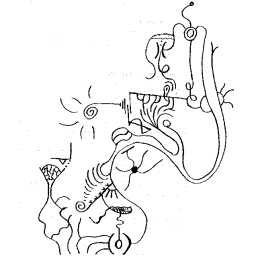 Albert about 9 yearsFrom the doc, this does not seem to decode UTF8.
Albert about 9 yearsFrom the doc, this does not seem to decode UTF8. -
 Albert about 9 yearsThis does not do UTF8 decoding.
Albert about 9 yearsThis does not do UTF8 decoding. -
 Redsandro about 9 yearsThis will throw
Redsandro about 9 yearsThis will throwRangeErroron bigger texts. "Maximum call stack size exceeded" -
 Redsandro almost 9 yearsThis seems kinda slow. But the only snippet in the universe I found that works. Good find+adoption!
Redsandro almost 9 yearsThis seems kinda slow. But the only snippet in the universe I found that works. Good find+adoption! -
 yonran over 8 yearsIf you are converting large Uint8Arrays to binary strings and are getting RangeError, see the Uint8ToString function from stackoverflow.com/a/12713326/471341.
yonran over 8 yearsIf you are converting large Uint8Arrays to binary strings and are getting RangeError, see the Uint8ToString function from stackoverflow.com/a/12713326/471341. -
 DanHorner over 8 yearsI don't understand why this doesn't have more upvotes. It seems eminently sensible to crank through the UTF-8 convention for small snippets. Async Blob + Filereader works great for big texts as others have indicated.
DanHorner over 8 yearsI don't understand why this doesn't have more upvotes. It seems eminently sensible to crank through the UTF-8 convention for small snippets. Async Blob + Filereader works great for big texts as others have indicated. -
 Vincent Scheib about 7 yearsThis does not produce the correct result from the example unicode characters on en.wikipedia.org/wiki/UTF-8. e.g. String.fromCharCode.apply(null, new Uint8Array([0xc2, 0xa2])) does not produce ¢.
Vincent Scheib about 7 yearsThis does not produce the correct result from the example unicode characters on en.wikipedia.org/wiki/UTF-8. e.g. String.fromCharCode.apply(null, new Uint8Array([0xc2, 0xa2])) does not produce ¢. -
 Jack Wester about 7 yearsThe question was how to do this without string concatenation
Jack Wester about 7 yearsThe question was how to do this without string concatenation -
 unhammer over 6 yearsWorks great, except it doesn't handle 4+ byte sequences, e.g.
unhammer over 6 yearsWorks great, except it doesn't handle 4+ byte sequences, e.g.fromUTF8Array([240,159,154,133])turns out empty (whilefromUTF8Array([226,152,131])→"☃") -
 Evan Hu over 6 yearsFor anyone lazy like me,
Evan Hu over 6 yearsFor anyone lazy like me,npm install text-encoding,var textEncoding = require('text-encoding'); var TextDecoder = textEncoding.TextDecoder;. No thanks. -
 Rohit Poudel almost 6 yearsAdd some description to answer. @terran
Rohit Poudel almost 6 yearsAdd some description to answer. @terran -
 doom over 5 yearsWorks great for me. And so simple ! But in fact Uint8Array have toString() method.
doom over 5 yearsWorks great for me. And so simple ! But in fact Uint8Array have toString() method. -
 wayofthefuture over 5 yearsbeware the npm text-encoding library, webpack bundle analyzer shows the library is HUGE
wayofthefuture over 5 yearsbeware the npm text-encoding library, webpack bundle analyzer shows the library is HUGE -
 Ten Bitcomb about 5 yearsEven shorter:
Ten Bitcomb about 5 yearsEven shorter:String.fromCharCode.apply(null, unitArr);. As mentioned, it doesn't handle UTF8 encoding, but sometimes this is simple enough if you only need ASCII support but don't have access to TextEncoder/TextDecoder. -
 LeOn - Han Li over 4 yearsSimple and elegant, was not aware
LeOn - Han Li over 4 yearsSimple and elegant, was not awareBufferis also Uint8Array. Thanks! -
 fiffy about 4 yearsBest solution here, as it also handles 4-byte-characters (e.g. emojis) Thank you!
fiffy about 4 yearsBest solution here, as it also handles 4-byte-characters (e.g. emojis) Thank you! -
 simbo1905 almost 4 yearsand what is the inverse of this?
simbo1905 almost 4 yearsand what is the inverse of this? -
 Joachim Lous almost 4 years@doom On the browser side, Uint8Array.toString() will not compile a utf-8 string, it will list the numeric values in the array. So if what you have is a Uint8Array from another source that does not happen to also be a Buffer, you will need to create one to do the magic:
Joachim Lous almost 4 years@doom On the browser side, Uint8Array.toString() will not compile a utf-8 string, it will list the numeric values in the array. So if what you have is a Uint8Array from another source that does not happen to also be a Buffer, you will need to create one to do the magic:Buffer.from(uint8array).toString('utf-8') -
 Loilo over 3 yearsNote that Node.js added the
Loilo over 3 yearsNote that Node.js added theTextEncoder/TextDecoderAPIs in v11, so no need to install any extra packages if you only target current Node versions. -
 RaR over 3 yearsWhy cases 8, 9, 10 and 11 are excluded? Any particular reason? And case 15 is also possible, right? 15(1111) will denote 4 bytes are used, isn't it?
RaR over 3 yearsWhy cases 8, 9, 10 and 11 are excluded? Any particular reason? And case 15 is also possible, right? 15(1111) will denote 4 bytes are used, isn't it? -
 Rosberg Linhares over 3 yearsI think that nowadays the best polyfill is FastestSmallestTextEncoderDecoder, as recommended by the MDN website.
Rosberg Linhares over 3 yearsI think that nowadays the best polyfill is FastestSmallestTextEncoderDecoder, as recommended by the MDN website. -
 Marc J. Schmidt almost 3 years
Marc J. Schmidt almost 3 yearsString.fromCharCode.apply(null, chars)will error ifcharsis too big. -
 simbo1905 almost 3 yearsis that everywhere or just some browsers and is it documented at all?
simbo1905 almost 3 yearsis that everywhere or just some browsers and is it documented at all? -
 Marc J. Schmidt almost 3 yearse.g. here developer.mozilla.org/en-US/docs/Web/JavaScript/Reference/…
Marc J. Schmidt almost 3 yearse.g. here developer.mozilla.org/en-US/docs/Web/JavaScript/Reference/…But beware: by using apply this way, you run the risk of exceeding the JavaScript engine's argument length limit. The consequences of applying a function with too many arguments (that is, more than tens of thousands of arguments) varies across engines. (The JavaScriptCore engine has hard-coded argument limit of 65536. -
 simbo1905 almost 3 yearsthanks. in my case i was doing crypto over smallish strings so not a problem. do you have a fix for long strings? :-)
simbo1905 almost 3 yearsthanks. in my case i was doing crypto over smallish strings so not a problem. do you have a fix for long strings? :-) -
 Marc J. Schmidt almost 3 yearssolution is to batch in 64k chars.
Marc J. Schmidt almost 3 yearssolution is to batch in 64k chars. -
 John Henckel over 1 yearThis does not work in Chrome.
John Henckel over 1 yearThis does not work in Chrome.Bufferis nodejs only.
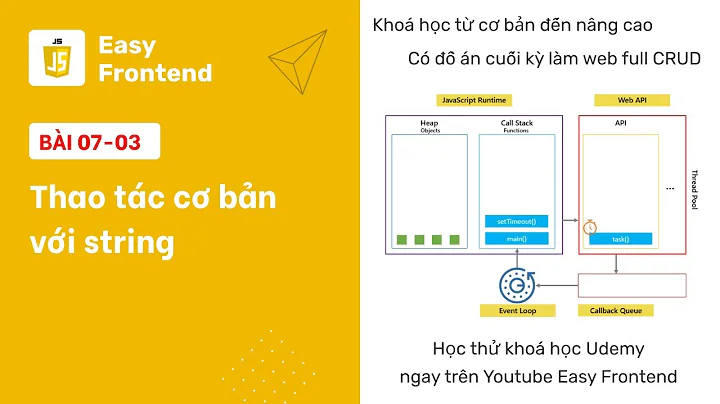
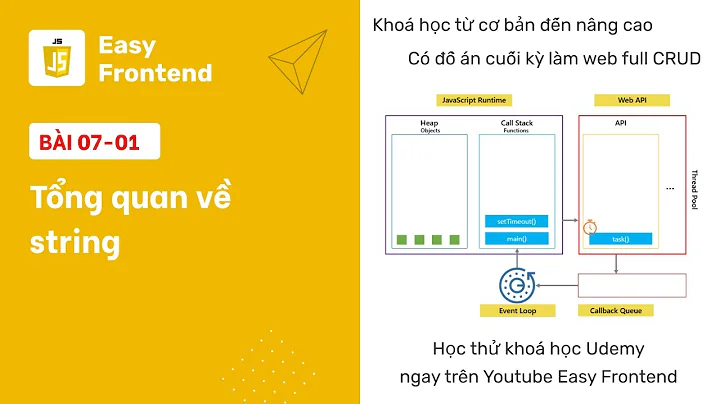


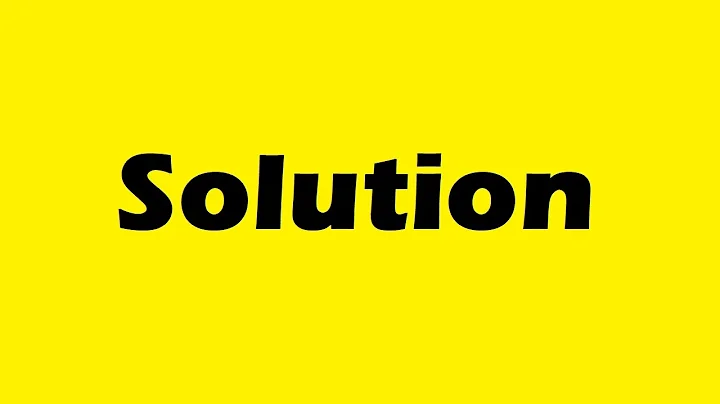



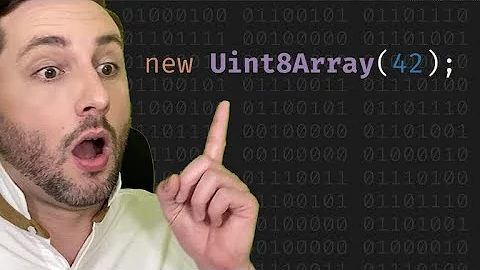
![String Casting JavaScript - [Convert a Value to String in JavaScript]](vi/KjV7UjgkhyM/hq720_sqp--oaymwEcCNAFEJQDSFXyq4qpAw4IARUAAIhCGAFwAcABBg---rs-AOn4CLDw_bjbRuFCrXTmY22UyoT9zyIK_A.jpg)